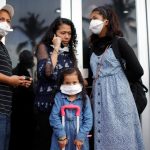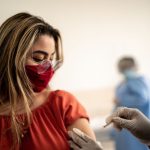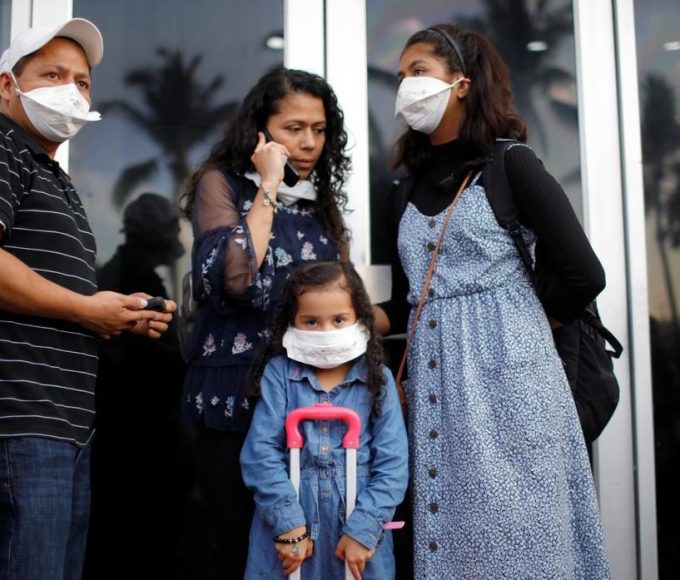Teen Pregnancy in the Americas:
What the U.S. Can Learn from its Neighbors
In July of 2017, the U.S. Department of Health and Human Services (HHS) began notifying recipients of federal sexual education funding through the Teen Pregnancy Prevention Program (TPP) that their five-year grants would end two years early, in 2018. Then, in August of last year, the Department issued a statement indicating plans to scrap the Program.
Launched in 2010 and run by the HHS Office of Adolescent Health, the TPP provides grants to community organizations delivering evidence-based programs, including comprehensive sexual education, as well as information about contraceptives and how to properly use them. By empowering girls to delay pregnancy until they feel ready to take on the responsibilities of parenthood, the TPP has been recognized for having helped bring the rate at which U.S. adolescents between 15 and 19 are giving birth to a record low in 2016.
Upon learning about the program’s cancellation last summer, implementing organizations in several states, as well as the District of Columbia, sued the Department to contest the funding cuts. In response, HHS agreed to preserve funds for the plaintiffs, pending the outcome of the lawsuits. Meanwhile, the Department’s FY19 proposed budget detailed new plans to shutter the TPP, along with the Office of Adolescent Health, and to boost spending for abstinence education. These efforts rest on the assumption that providing information about sex and contraception to adolescents leads teens to become more sexually active than they might be without access to sexual education.
Yet evidence from Latin America and the Caribbean, where the teen pregnancy rate is the second highest in the world, behind sub-Saharan Africa, shows that this logic is flawed. Lamenting the fact that adolescent pregnancy rates in the Latin America and the Caribbean have remained largely unchanged, even as overall total fertility rates have fallen since the late 20th century thanks to family planning programs, the Pan American Health Organization (PAHO), UNICEF and UNFPA recently reported that
“Due to its linkage with poverty, social exclusion, and sexual and gender-based violence (SGBV) and early marriage/union, adolescent pregnancy disproportionately affects girls who are already marginalized and is aggravated by lack of access to comprehensive sexuality education (CSE) and SHR services, including modern contraceptives.”
Girls between the ages of 15 and 19 who become mothers often report they were not previously aware that sexual activity could lead to conception and that they were surprised to discover they were pregnant after having sex. In 2008 Ministers of Education from around the region committed to the Declaration of Mexico City on the margins of the International AIDS Conference. However, despite a generalized agreement to provide information about sex, contraception, and sexually transmitted infections within the school setting, poor funding for public education in many of the region’s countries has meant that sexual education remains a low priority.
The recent PAHO/UNICEF/UNFPA report further noted that pregnancies among girls under the age of 15 in the region are rising. For the very youngest mothers between the ages of 10 and 14, high rates of sexual violence, including rape and sexual abuse by male family members, have led to a rising pregnancy rate. Despite legal instruments such as the Inter-American Convention Against Violence Against Women (Belem Convention) and the United Nations Convention to Protect the Rights of the Child, law enforcement officials are frequently reluctant to intervene in perceived private, or family, matters, and so denunciations rarely make it to court.
]Girls who become pregnant at an early age face higher rates of maternal mortality and delivery complications than do mothers in their 20s, and they are also more likely to drop out of school, limiting their own economic prospects and those of their children. In most countries in the region, access to abortion is restricted, if not illegal, in most circumstances, even for young girls who are rape victims. When these girls are forced by authorities to carry their pregnancies to term, they can suffer long-lasting physical and psychological trauma.
Back in the United States, in March, Congress restored some funding for the TPP through the end of FY18 in the Omnibus Spending Bill signed by President Trump. The bill included additional funding for abstinence education, as well. Shortly thereafter, HHS released a new call for proposals that emphasize “sexual risk avoidance” or “sexual risk reduction,” terms that some advocates have argued are euphemisms for an abstinence-focused curriculum.
In five of the lawsuits that had protested the abrupt funding cuts announced in 2017, federal judges have ruled in favor of the plaintiffs. For now, at least, support for the organizations involved in the lawsuits is restored.
But as Congress debates the FY19 budget, and as HHS administrators continue efforts to shutter the TPP altogether, they may wish to consider lessons from their Latin American and Caribbean counterparts when it comes to preventing teen pregnancy.
Failing to provide young women with information about sex and contraception can have negative, multi-generational consequences. Comprehensive sexual education, informing young women about unwanted or violent sexual activity, and prosecuting those who violate them is necessary and, in many cases, overdue.
Words by Katherine Bliss
To Read More INTELIGENCIA stories like this one, go here

















Leave a comment